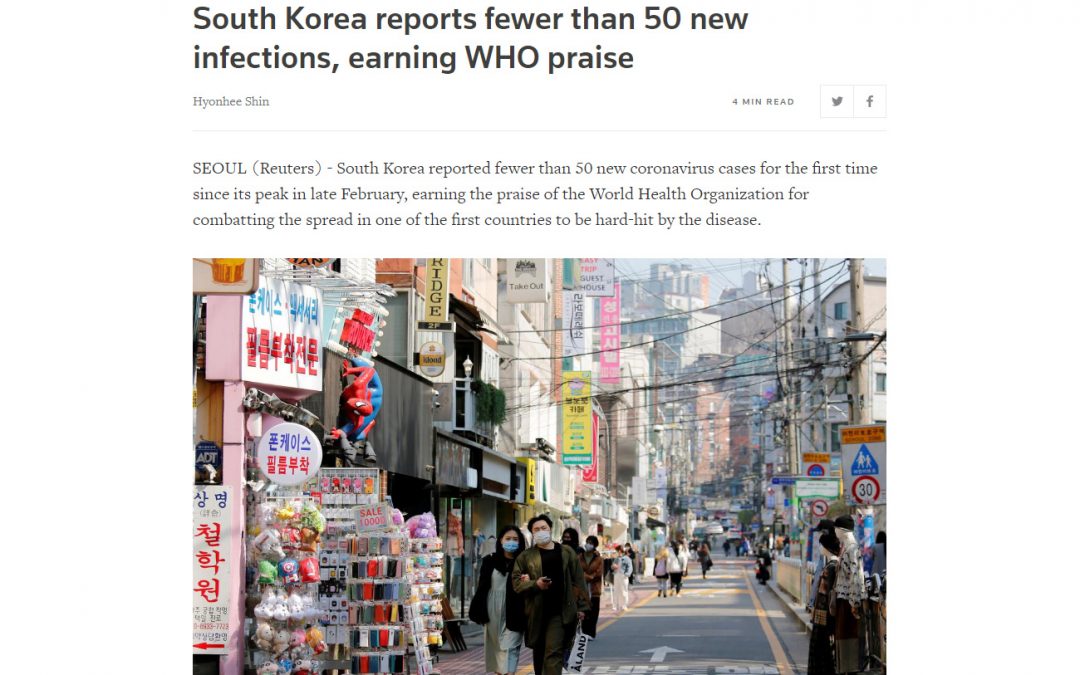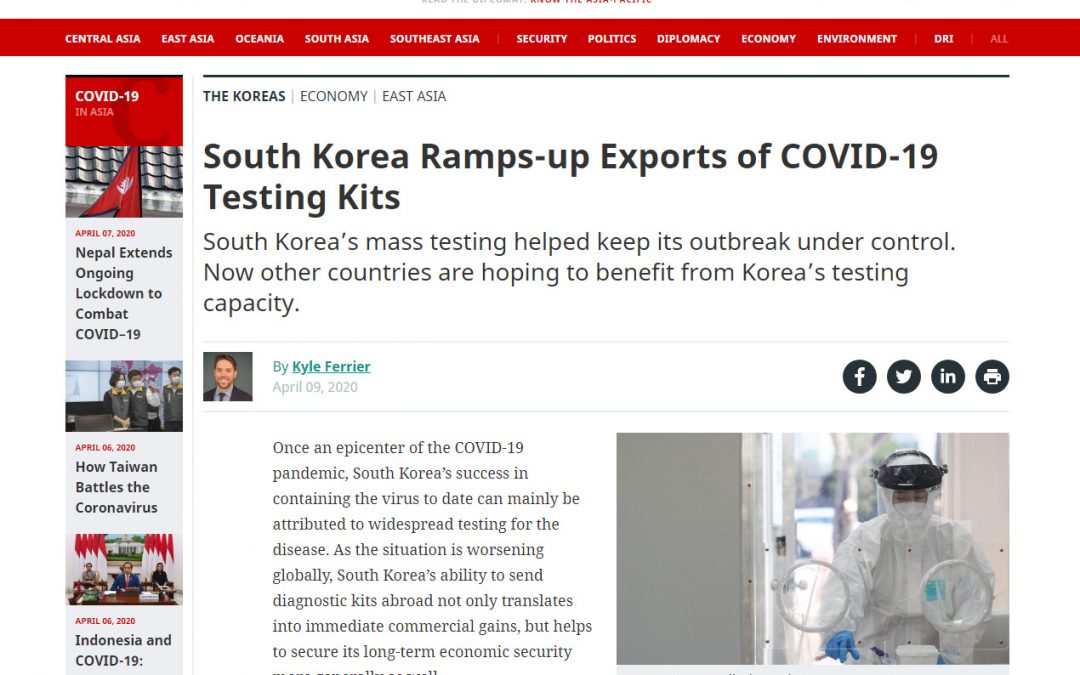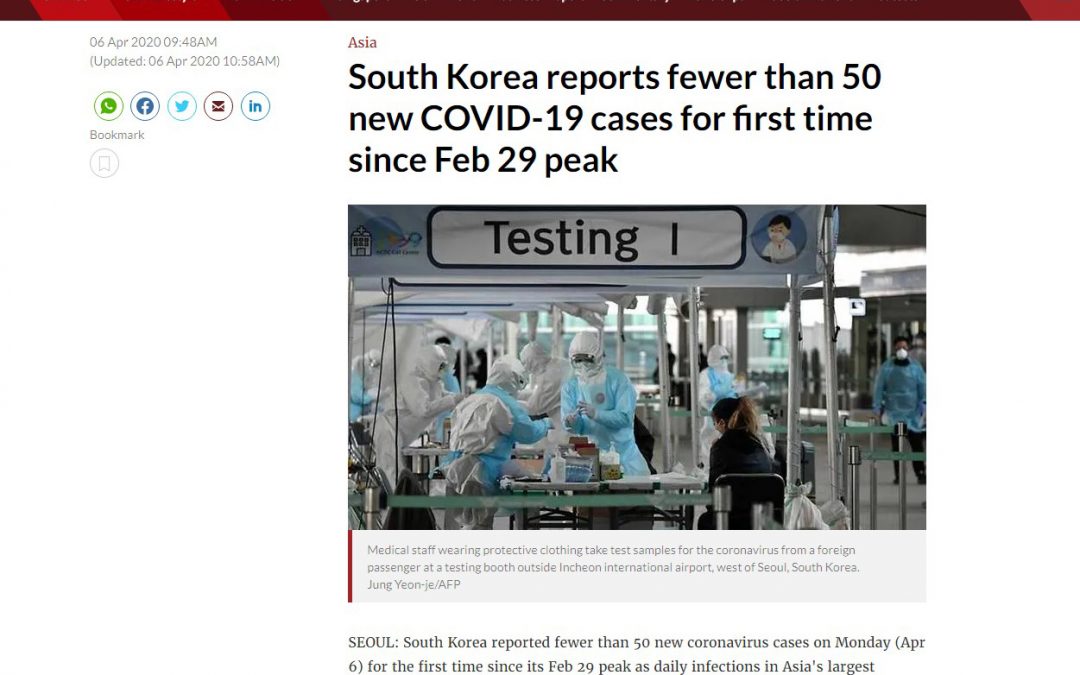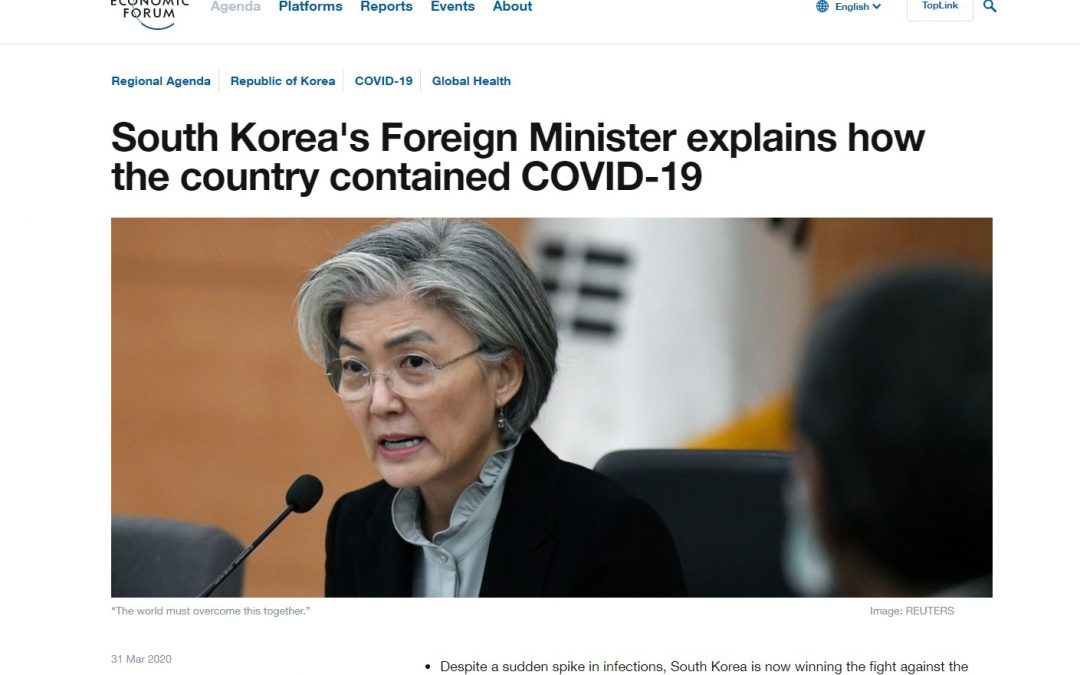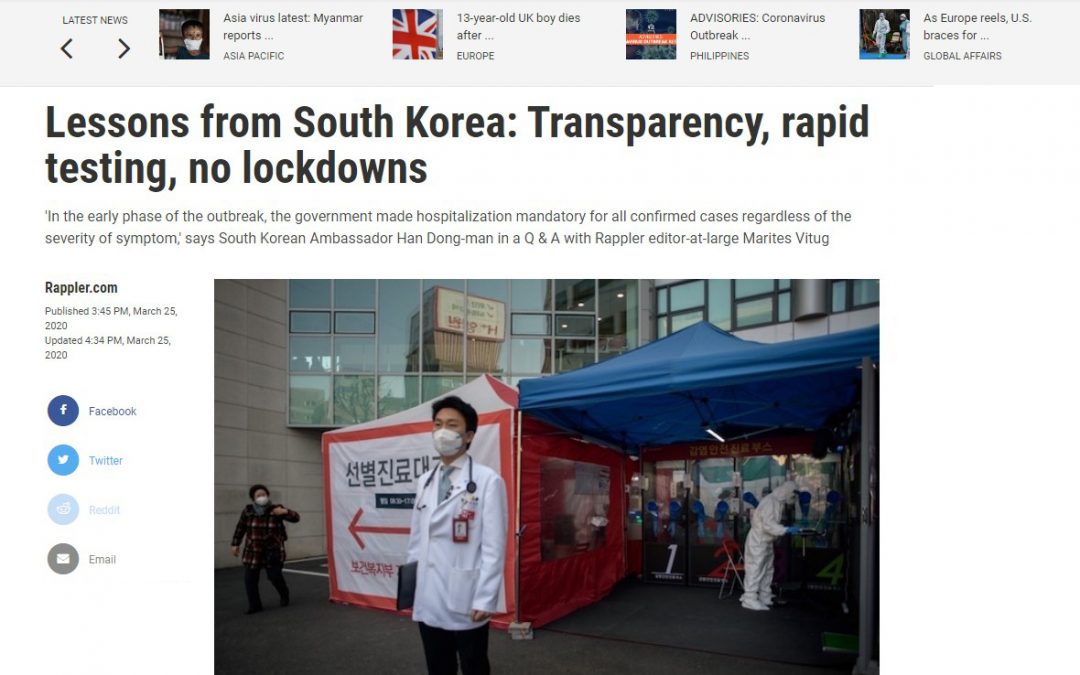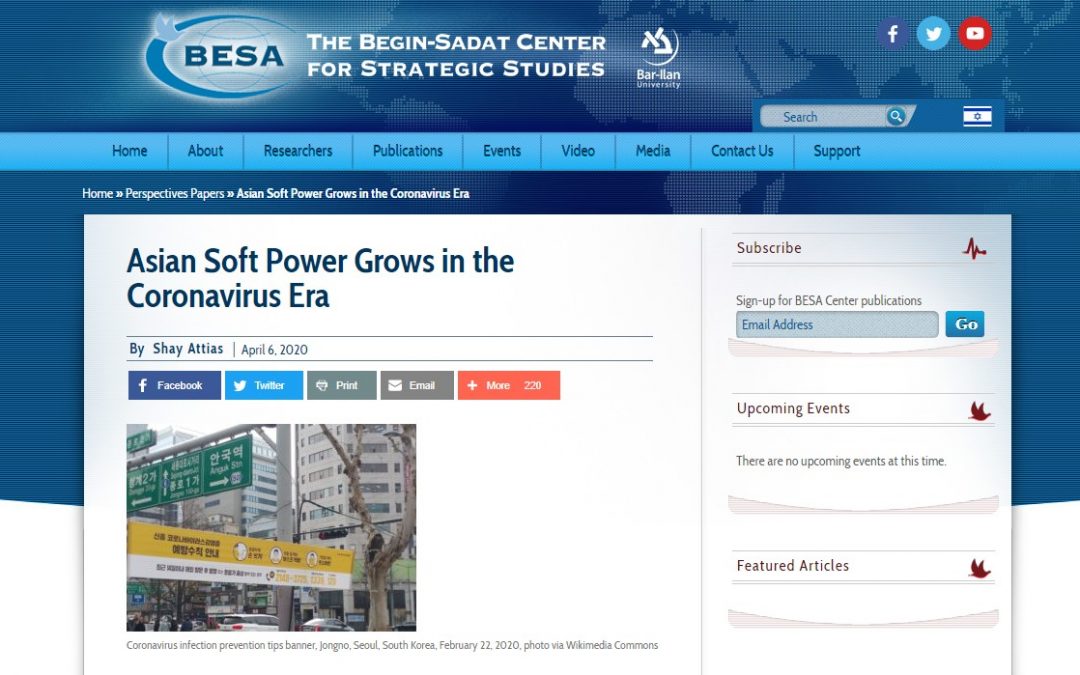
Asian Soft Power Grows in the Coronavirus Era
Asian Soft Power Grows in the Coronavirus Era
| Eyes of World |

Israel’s BESA institute released an article on April 6, predicting that the process of responding to the coronavirus in South Korea and other Asian countries has been successful and that it will improve their soft power.
According to the article, the global health crisis precipitated by the coronavirus (COVID-19) requires a swift and dramatic increase in global transparency, collaboration, diplomacy, and communication. The pandemic is forcing a reconstruction of global priorities, agendas, and even the known order.
Within that context, South Korean president Moon Jae-in is pushing a public diplomacy campaign to elevate his nation’s brand by leveraging the information the country has accumulated since January 2020 on how best to respond to the crisis. South Korean data has proven essential to the crisis management programs many other states are now scrambling to assemble.
The coronavirus outbreak has led to an improvement in South Korea’s global image. The country, which reduced its number of confirmed coronavirus cases in early February 2020 just as case figures were dramatically escalating around the world, is perceived as a model of how to cope with the crisis. Impressively, the country has tested more than a quarter-million people at 600 testing sites nationwide—a capacity of 20,000 people a day. Not only are the tests much more numerous in South Korea than elsewhere, but results are sent to citizens by text within six hours.
Korean citizens played an essential role in the rise of their national brand by being the first to model “voluntary passive social isolation,” an element that was vital to the success of the government’s measures. Even before the government coordinated its message on social distancing, the people of South Korea embraced the need to close businesses even if that measure would incur personal financial hardship. Korean churches suspended services and moved online. According to one resident, “It’s less about protecting ourselves and more [that] we don’t want to spread this throughout the community.” This attitude is the opposite of what was seen in Miami, for example, where crowds of people flocked to the beach in total disregard of the danger of either being infected by coronavirus or passing it on to others.
South Korea’s aggressive, efficient, and fast testing has impressed countries around the world, around 117 of which are now importing Korean testing kits and medical equipment as their numbers of confirmed cases grow. Health ministries around the world are applying the Korean strategy to their own fights against coronavirus.
Asian companies, people, and governments bolsters their global reputation and will probably translate into more foreign investment. South Korea had a low score on the 2019 Soft Power Index (19th), but it will likely rise much higher after the coronavirus crisis passes.
